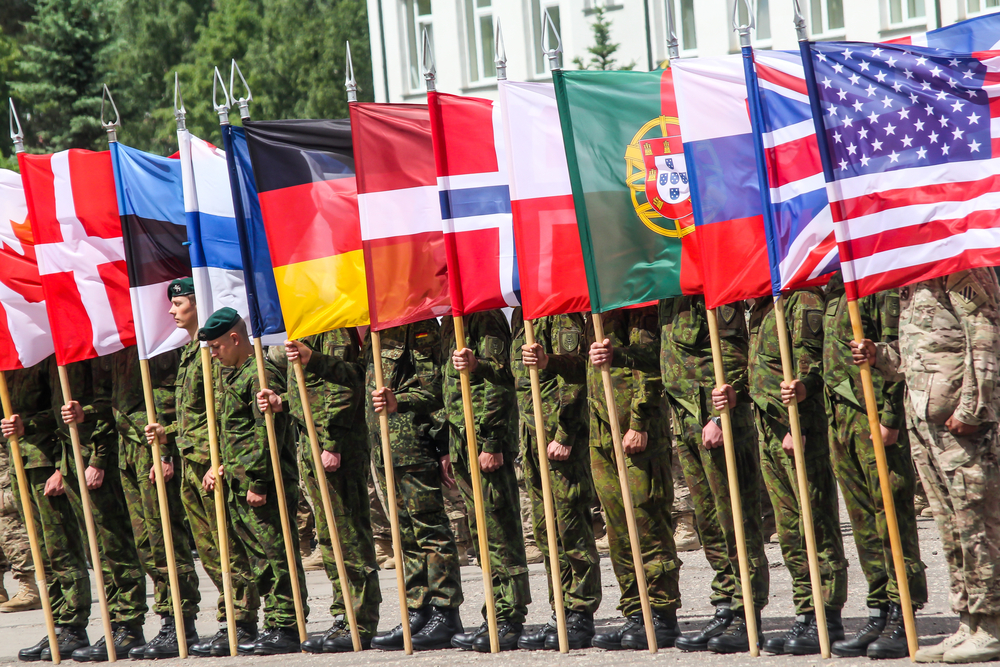Tailored Assurance: Balancing Deterrence and Disarmament in Responding to NATO-Russia Tension

The 2018 Nuclear Posture Review (NPR) called for tailoring assurance across America’s allies, including NATO, as part of an overall deterrence and assurance strategy.

NATO is currently dealing with several challenges: Russian hostility, growing pressure internally for nuclear disarmament or withdrawal of non-strategic US nuclear weapons, as well as the questioning of America’s credibility as a guarantor of European security. Since these sources of tension are not felt symmetrically across the 29 member states, it has become necessary to adapt assurance measures on a case-by-case basis by adjusting the military capabilities involved and the communication according to the needs of each country.
The purpose of this study is to identify the various options available to the United States to enable it to adapt capabilities, messaging strategies, and other tools, thereby providing more effective and consistent assurance in the face of the Russian threat. In order to respond effectively to a strategy aimed at accentuating the internal divisions of the Alliance, it is necessary to combine measures related to the “hardware” of NATO’s posture (nuclear weapons, investments, conventional forces etc.) and others related to its “software” (values, Alliance cohesion, communication, etc.).

Available in:
Regions and themes
ISBN / ISSN
Share
Download the full analysis
This page contains only a summary of our work. If you would like to have access to all the information from our research on the subject, you can download the full version in PDF format.
Tailored Assurance: Balancing Deterrence and Disarmament in Responding to NATO-Russia Tension
Related centers and programs
Discover our other research centers and programsFind out more
Discover all our analysesMain Battle Tank: Obsolescence or Renaissance?
Since February 2022, Russian and Ukrainian forces combined have lost more than 5,000 battle tanks, a much higher volume than all the European armor combined. Spearhead of the Soviet doctrine from which the two belligerents came, tanks were deployed in large numbers from the first day and proved to be a prime target for UAVs that became more numerous and efficient over the months. The large number of UAV strike videos against tanks has also led a certain number of observers to conclude, once again, that armor is obsolete on a modern battlefield. This approach must, however, be nuanced by a deeper study of the losses and their origin, UAVs rarely being the sole origin of the loss itself, often caused by a combination of factors such as mines, artillery or other anti-tank weapons.
Mapping the MilTech War: Eight Lessons from Ukraine’s Battlefield
This report maps out the evolution of key technologies that have emerged or developed in the last 4 years of the war in Ukraine. Its goal is to derive the lessons the North Atlantic Treaty Organization (NATO) could learn to strengthen its defensive capabilities and prepare for modern war, which is large-scale and conventional in nature.
"Iron Swords" A Military Analysis of Israel's War in Gaza
On October 7, 2023, Hamas' attack, dubbed “Al-Aqsa Flood,” caused a major shock and led Israel to launch the longest war in its history. Operation “Iron Swords” was notable for its unprecedented intensity, both in terms of the massive ground forces deployed and the firepower used.
Saudi Arabia’s Nuclear Temptations. Lessons Learned from Regional Instability
Saudi Arabia’s integration in the international arena and regional stability, notably through reducing its dependence on fossil energies, are crucial elements for the success of the Kingdom’s Vision 2030, the Crown Prince’s top priority. However, Mohammed bin Salman’s declarations in 2018 and 2021, indicating that “if Iran develops a nuclear bomb, we will follow suit as soon as possible”, combined with the recent strikes on key Iranian nuclear facilities, do not bode well for the future of the Kingdom, the region and the non-proliferation regime at large.










